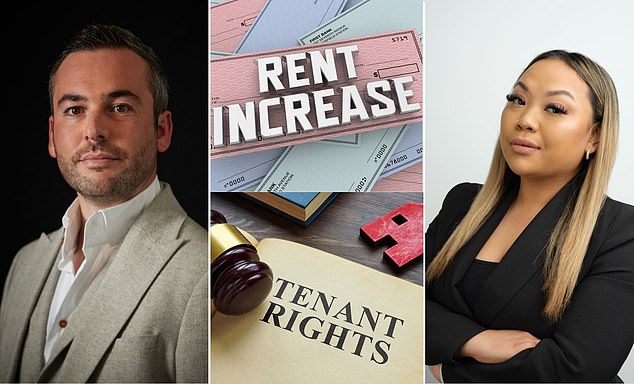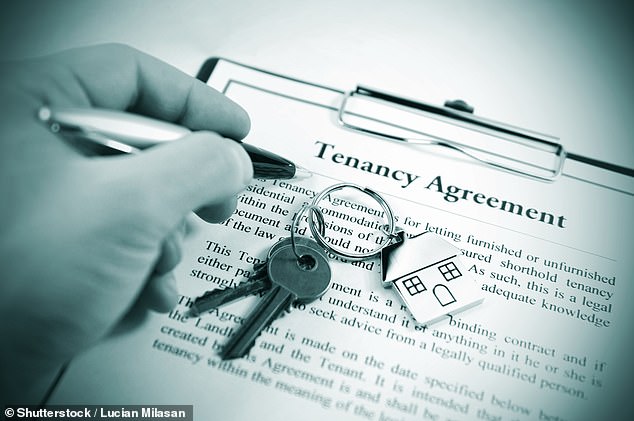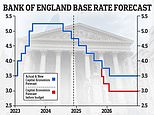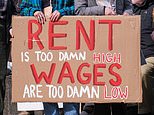Our landlord increased the rent twice in the last year adding £450 a month - can we do anything?
We are moving out of our rented flat in London as we've just bought our first home.
We have lived there for two and a half years, and the landlord has put the rent up twice. A year ago, we started paying £250 more per month than we were when we moved in. For the last six months, we have been paying £450 more.
Each time, the landlord's reason for putting it up was that our rent was below the market rate.
But now he is trying to rent it to new tenants, and it is clear that the rent is too expensive. At first it was on the market for £200 more per month than we are paying, and no one wanted it. Then he reduced it to the same as we are paying, and still it didn't go.
Now, it's on the market for £200 less than we are paying and it still hasn't been taken.
We always felt our second rent rise was unfair, but we weren't in a position to move as we were just a few months away from buying. This seems to prove it. Is there anything we can do?

Ask an expert: Our reader endured two rent increases over the last year adding £450 more on to their monthly payments. We set out to establish whether there is anything they can do
Ed Magnus of This is Money replies: Congratulations on buying your first home and escaping the ever-increasing rents charged by your landlord.
While a landlord is within their rights to increase the rent to reflect market rates, you appear to have been on the receiving end of some rather steep increases.
The landlord would probably argue that it's a free market and you were within your rights to refuse the rent hikes and leave.
However, you argue that the second rent rise was unfair. That may well be the case, but it may also be in breach of your contract depending on the tenancy agreement.
Over the past two and half years the average rents have shot up by just over 20 per cent, according to Zoopla.
Even so, to have been charged £450 more each month than you were two and half years ago seems like a lot.
The average rent has risen by £215 a month during that time, according to Zoopla, from £1,055 a month to £1,270 a month.
Even by London standards, your rent has gone up a lot. The average rental property in the capital has risen by £356 a month over the past two and half years, from £1,757 in March 2022 to £2,113 as of September this year.
Ultimately, it will depend on rents in your local area, but if your landlord was taking advantage of your situation with continuous rent hikes, then it's worth finding out if there is anything you can do about it.
For expert advice, we spoke to Nollienne Alparaque, head of the landlord and tenant department at OTS Solicitors and Oli Sherlock, managing director of insurance at lettings platform Goodlord.
Can a landlord hike the rent as and when they like?
Oli Sherlock replies: I'm presuming that you, like most tenants, had the relevant clauses included in your rental agreement that allow the landlord to make rental increases.
That means the landlord was within their rights to increase the rent at certain points during your tenancy.
Unfortunately, given that this provision was most likely in your contract and you agreed to pay the increased rates at the time, there is very little you can do now.
Rental costs are typically dictated by the market. Rents across England have risen sharply in recent years.

Oli Sherlock, managing director of insurance at Goodlord says there is nothing they can do if their landlord followed the terms set out in the tenancy agreement
In some areas, prices over the summer were over 7 per cent higher than they were the previous year.
However, price inflation is starting to cool off as we head into winter. There's a chance that the price increases your landlord imposed were aligned with market rates and demand at the time, and that local prices have since cooled.
Either way, that's nothing you can do at this stage if your landlord followed the terms set out in your tenancy agreement.
However, once the Renters' Rights Bill is passed into law, all rental increases will only be permissible via a 'Section 13' notice - this will mean that any increases must be in line with market value.
And tenants will have the ability to dispute overzealous increases via a tribunal. The Bill is expected to be in place by summer 2025.
Nollienne Alparaque replies: Whether a landlord can increase your rent depends on the terms of your tenancy agreement.
As a general rule, a landlord cannot raise your rent during a fixed-term tenancy unless your agreement explicitly allows for it.
If your tenancy agreement includes a clause permitting rent increases at certain intervals, the landlord can increase the rent in line with that clause.

Nollienne Alparaque of OTS Solicitors says a landlord cannot raise rent during a fixed-term tenancy unless the agreement explicitly allows for it
If no such clause exists, the landlord cannot raise the rent during the fixed term, and you are not required to agree to any increase.
Once your fixed term ends, your tenancy will typically roll over into a periodic (rolling) tenancy, at which point the landlord can propose a rent increase.
This is done by issuing a notice under Section 13 of the Housing Act 1988. The notice must be in writing and gives you the opportunity to challenge the increase if you believe it is unreasonable.
To determine if the rent increase was valid, you should first review the terms of your tenancy agreement.
Was the rent increase during the fixed term of your tenancy? If so, check if your agreement allowed for rent increases.
If the tenancy had already moved to a periodic rolling tenancy, the landlord cannot increase the rent without following the proper procedure, including issuing a Section 13 notice.
What if they didn't issue a section 13 notice?
Nollienne Alparaque replies: If you were on a rolling tenancy and the landlord raised the rent without issuing a Section 13 notice, you were under no obligation to agree to the increase.
In this case, you could have requested the landlord to provide the correct notice, which would have allowed you to challenge the rent increase through a rent officer at the Property Tribunal.
While you may have felt pressured to accept the rent increase to avoid being asked to leave, it's important to know that the landlord must follow the correct legal process for eviction.

Section 13 notice: During a rolling periodic tenancy, a landlord must issue a section 13 notice to increase the rent
If the landlord had wanted to evict you for not agreeing to the increase, it would have taken several months and required a formal eviction procedure.
In summary, if the rent increase occurred within the fixed term without agreement or during a periodic tenancy without a Section 13 notice, the landlord did not follow the correct procedure.
You were under no obligation to accept the increase, and you had the right to challenge it.
But can they challenge it in retrospect?
Nollienne Alparaque replies: The difficulty is that the tenants agreed, as such a landlord can argue that all parties had an agreement in principle and the tenants paying the rent increase would be a further confirmation of their acceptance to the agreed rental increase.
If the landlord raised the rent within the fixed term and there was a rent increase clause, the tenants could argue this was a breach of the agreement.
A landlord may in response argue otherwise that the tenants agreed by way of a mutual agreement regardless.
As such it might be tricky to succeed in successfully getting any rent back.
























































